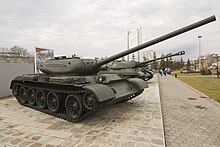Template:Main Page/Featured: Difference between revisions
Jump to navigation
Jump to search
RedParabola (talk | contribs) mNo edit summary |
RedParabola (talk | contribs) (Changed featured article) |
||
| Line 4: | Line 4: | ||
| style="padding-right:0px;vertical-align:top;" width="100%" | | | style="padding-right:0px;vertical-align:top;" width="100%" | | ||
<div style="font-size:150%; text-align:center; color: #FFFFFF; font-family:Garamond;" class="frame-header2">[[File:38px-Text-x-generic with pencil-2.svg.png|left|frameless|28x28px]]Featured article</div><hr style="color: #FFFFFF; background-color: #FFFFFF;"/> | <div style="font-size:150%; text-align:center; color: #FFFFFF; font-family:Garamond;" class="frame-header2">[[File:38px-Text-x-generic with pencil-2.svg.png|left|frameless|28x28px]]Featured article</div><hr style="color: #FFFFFF; background-color: #FFFFFF;"/> | ||
<div style="font-size:93%; font-family:Garamond;">[[File: | <div style="font-size:93%; font-family:Garamond;">[[File:Tank T-54 in Verkhnyaya Pyshma.jpg|frameless|left|420x350px]]<br>The word '''''tankie''''' is a pejorative or self-descriptive term which can have several meanings. First used within sections of the [[Cold War]] [[Leftism|left]] to decry support for [[USSR|Soviet]] interventions in [[Warsaw Pact]] countries, the term was later resurrected by [[Online Left|internet leftists]] and broadened in scope to include [[Historical revisionism|historical revisionists]] concerned with any [[socialist state]]. Because of their opposition to liberal historical narratives and longtime association with the [[Soviet Union]], [[Marxism–Leninism|Marxist–Leninists]] were often labelled ''tankies''; the persistent use of the term in this sense has given rise to neutral or even positive connotations, and modern leftists may use the two interchangeably.<br><br> | ||
Starting in the 2010s (or possibly earlier), left-adjacent [[liberal]]s such as [[progressive]]s and [[radlib]]s, either by deliberate innovation or as the result of a misconception (e.g., that only a tankie could hold such positions), began to use the term against critics of Western narratives concerning the [[Syrian Civil War]], [[North Korea]], and the [[Ukraine|2014 Ukraine conflict]], among other topics. This usage is unequivocally negative and has achieved widespread currency online, even among [[centrist]]s and [[Rightism|rightists]]. The term is now a favorite of establishment media figures (including "blue-checks"), who have in recent years taken to several mainstream outlets to criticize specific ideas or figures which they believe are part of a rising tide of tankie influence. The use of the word almost always implies support for [[authoritarianism]].<br></div><br><div style="text-align: center;">[[:Category:Featured articles|''other featured articles...'']]</div><div style="text-align: right; font-family: Garamond;">[[Tankie|''read more...'']]</div> | |||
|} | |} | ||
Revision as of 20:52, 22 May 2024
|
The word tankie is a pejorative or self-descriptive term which can have several meanings. First used within sections of the Cold War left to decry support for Soviet interventions in Warsaw Pact countries, the term was later resurrected by internet leftists and broadened in scope to include historical revisionists concerned with any socialist state. Because of their opposition to liberal historical narratives and longtime association with the Soviet Union, Marxist–Leninists were often labelled tankies; the persistent use of the term in this sense has given rise to neutral or even positive connotations, and modern leftists may use the two interchangeably. Starting in the 2010s (or possibly earlier), left-adjacent liberals such as progressives and radlibs, either by deliberate innovation or as the result of a misconception (e.g., that only a tankie could hold such positions), began to use the term against critics of Western narratives concerning the Syrian Civil War, North Korea, and the 2014 Ukraine conflict, among other topics. This usage is unequivocally negative and has achieved widespread currency online, even among centrists and rightists. The term is now a favorite of establishment media figures (including "blue-checks"), who have in recent years taken to several mainstream outlets to criticize specific ideas or figures which they believe are part of a rising tide of tankie influence. The use of the word almost always implies support for authoritarianism. |
